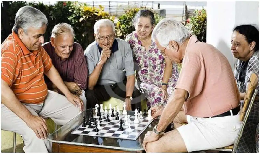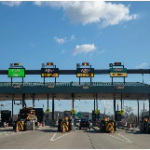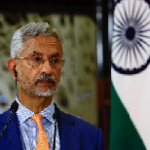In a significant move, the Centre has extended health cover for senior citizens above 70 years under ‘Ayushman Bharat Pradhan Mantri Jan Arogya Yojana’. The move represents a big change in India’s public healthcare system, which had been freed from the shackles of income requirements, guaranteeing critical health insurance for the elderly population. This will come as a big relief for this vulnerable section of society, because of the rising medical costs and growing health needs of elderly senior citizens.
Salient Features Of The Expansion
Under the expanded Ayushman Bharat scheme, senior citizens aged 70 years and above will now be covered with an annual health insurance of ₹5 lakh per family. Thus, the new initiative aims to meet the emerging health problems of the aged, especially those who have no adequate social security. Basically, AB PM-JAY targets the economically weaker sections and covers approximately 40% of the country’s total population. From the previous more than 4.5 crore families in the country, the scheme will now reach out to an additional 6 crore with this new decision.
Individual Health Cards For Senior Citizens
Of the many important features of this expansion, a new health card for each senior citizen eligible under the scheme will be issued. This will facilitate undeterred and smooth access to healthcare benefits. This also gives clarity that in cases there are multiple senior members in a family, the ₹5 lakh cover would be shared among them. For example, if a family has two senior citizens, then the cover would split between them.
How The Scheme Works For Senior Citizens
Senior citizens below the age of 70, and thus beneficiaries of other public health insurance programs such as the Central Government Health Scheme or Ex-Servicemen Contributory Health Scheme, or even Ayushman CAPF, will have to choose between these and the newly expanded Ayushman Bharat cover. However, in the case of those having private health insurance or covered under the Employees’ State Insurance Scheme, the Ayushman Bharat scheme can be availed of without any conflict with their already existing policies.
Impact On Families Already Covered Under Ayushman Bharat
For the already enrolled families under the Ayushman Bharat scheme, ₹5 lakh top-up health coverage will be provided additionally for the elderly population above 70 years. Since this top-up is exclusively for the elderly in a family, it therefore need not be shared with other family members. This becomes especially important because, in this way, the elderly would have exclusive health coverage so as to meet the specific needs of the elderly without inflicting extra financial burdens on the family.
Why This Expansion Matters
The given expansion is quite a leap towards better social security for the senior citizens of this country. Since it is a fact that the country is slowly moving into nuclear family systems, many elderly people are left with no economic backing from the younger members of the family. Quoting Union Minister Ashwini Vaishnaw, such a move becomes quite significant to help the aged population, with the country witnessing a change in family systems.
Given spiraling medical costs and increasing aged population, all-rounded health cover has acquired utmost importance. As per the Longitudinal Ageing Study in India, the proportion in India’s population aged 60 and above years is very likely to rise from 8.6% in 2011 to 19.5% by 2050. The increase in this aged population brings about great implications for the healthcare system, making this expansion of the Ayushman Bharat scheme timely and necessary.
Funding And Cost Of The Expansion
A rough estimate of the cost to be incurred to extend the Ayushman Bharat Scheme to senior citizens above 70 years is ₹3,437 crore. The Central government would bear the majority of the cost, while states would contribute 40% of it. In the case of hilly and northeastern states, the Centre would bear 90%. With mounting demand for the health scheme, the government has been committed to increasing its financing sufficiently so that the coverage needs of all eligible citizens can be met.
How To Apply Ayushman Bharat Health Insurance
1. Visit the Official Website: Go to the official Ayushman Bharat PMJAY website.
2. Verify Your Identity: Have your Aadhaar card or ration card verified at a PMJAY kiosk.
3. Submit Family Identification Proofs: Provide necessary documents for family identification.
4. Receive Your E-Card: Obtain your e-card with a unique AB-PMJAY ID.
Who Will Benefit From The Extension?
The government estimates that about 6 crore people of 4.5 crore families would be benefited from the extension. All the eligible senior citizens would be given a new health card to facilitate easy access to the scheme’s benefits.
Health Care Needs On An Increasingly Aging Population
India is witnessing a boom in the elderly population, projected to increase from the current 153 million to 347 million by 2050. Since this population segment continues to increase in India, comprehensive healthcare coverage is of prime importance. The expanded Ayushman Bharat, therefore, is a step toward responding to the healthcare challenges faced by the elderly, ensuring access to quality healthcare without having to bear the expensive burden of medical expenses.
Shortcomings Of The Scheme
While the expansion of Ayushman Bharat is very commendable in support of elderly persons, the said scheme principally covers inpatient care. The scheme does not cover outpatient services, which account for a major share of medical expenses. According to a study published in the International Journal of Preventive Medicine, 40-80% of health expenditure in India is on OPD services. That coverage gap would mean that even under the expanded coverage, many people could be facing out-of-pocket expenses for getting medical treatments that do not require hospitalization.
A Major Leap Towards Health Care For Senior Citizens
Inclusion of senior citizens over 70-plus years under the Ayushman Bharat Pradhan Mantri Jan Arogya Yojana is yet another major development taken in India’s healthcare system. In a way, by removing the restrictions in terms of assured income level, the scheme thus offers the required health cover for senior citizens. While the expansion carries a few limitations, especially for outpatient care, this indeed is one big step to ensure that elderly people in India receive affordable healthcare. With the rise in senior citizens across the country, such initiatives are bound to play a major role in shaping the future of healthcare in India.



